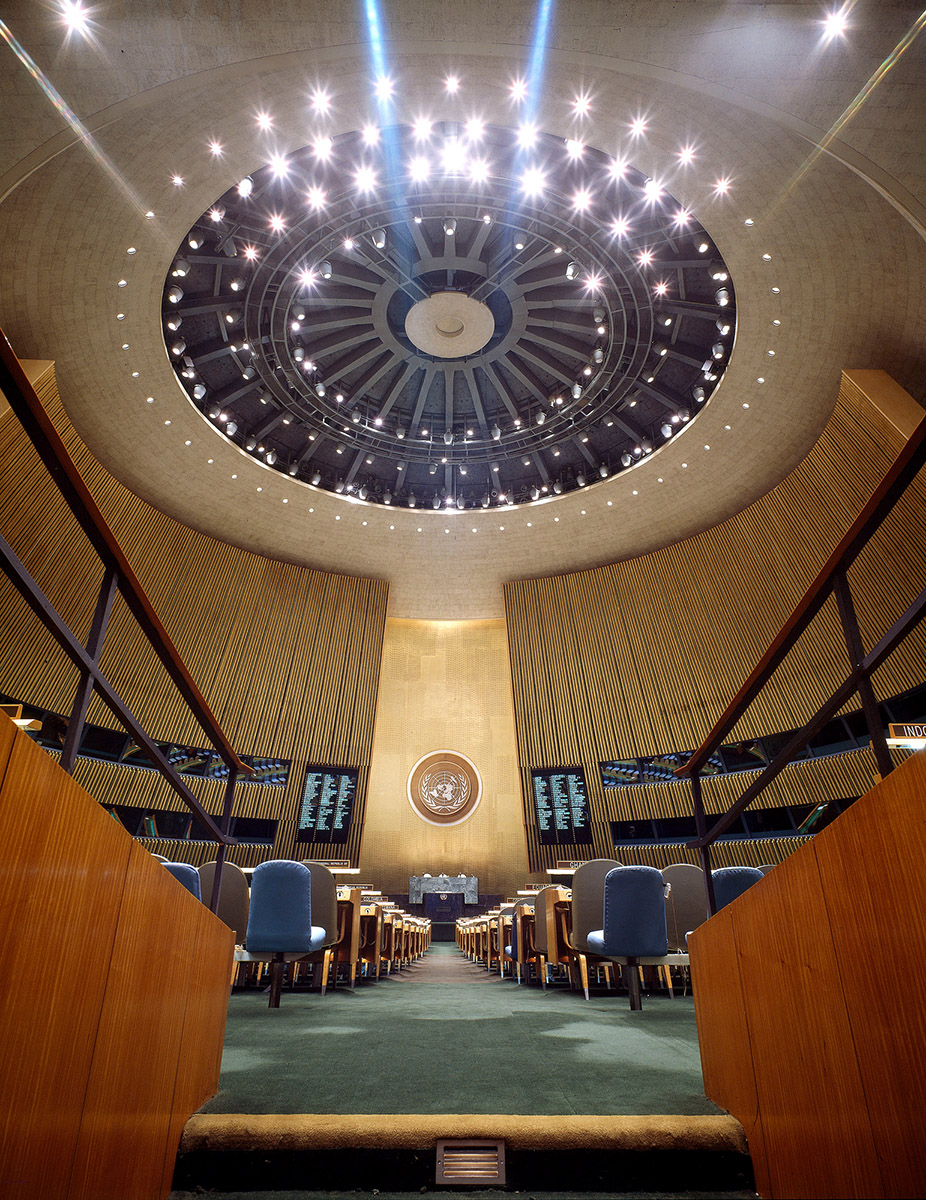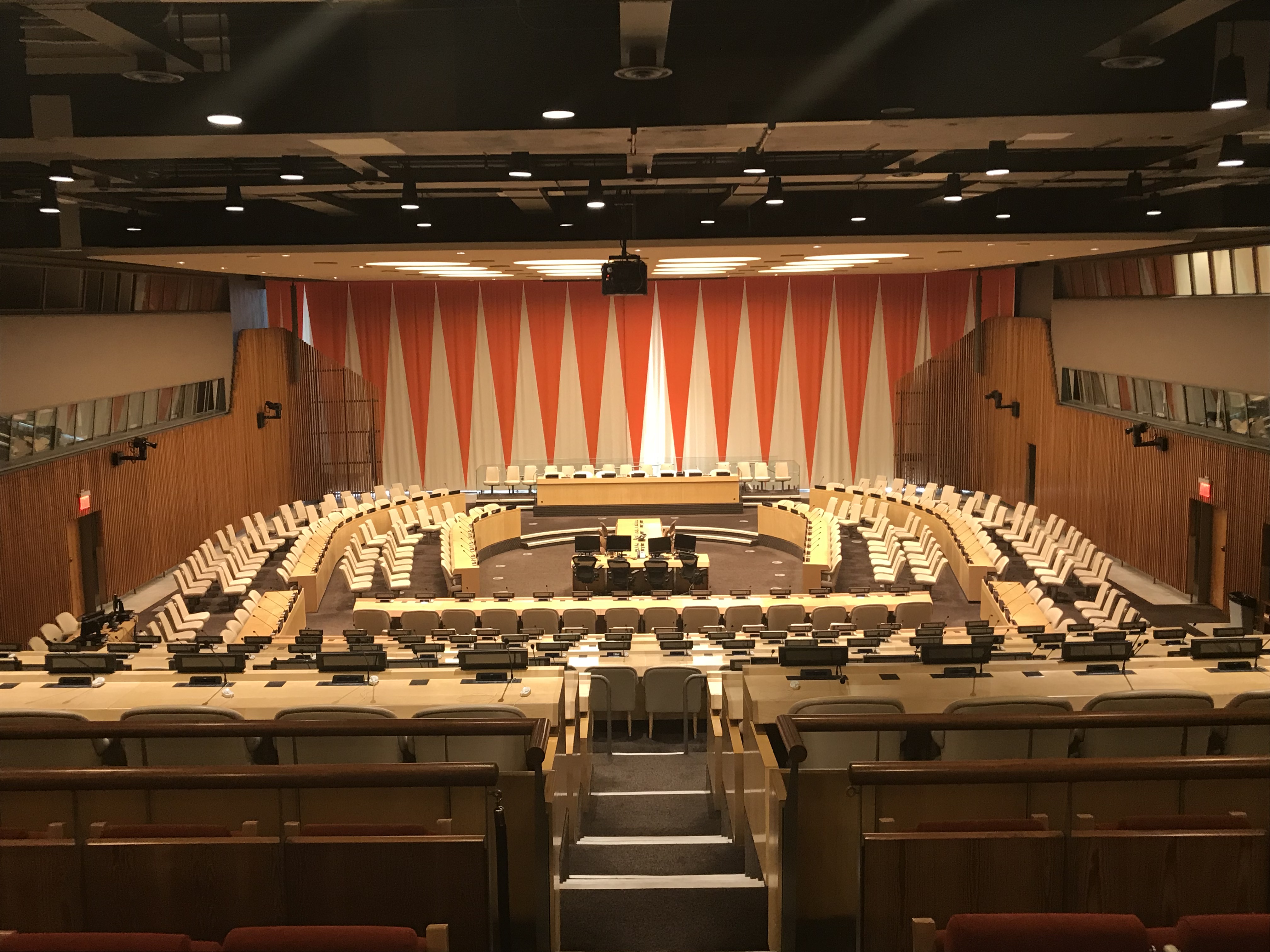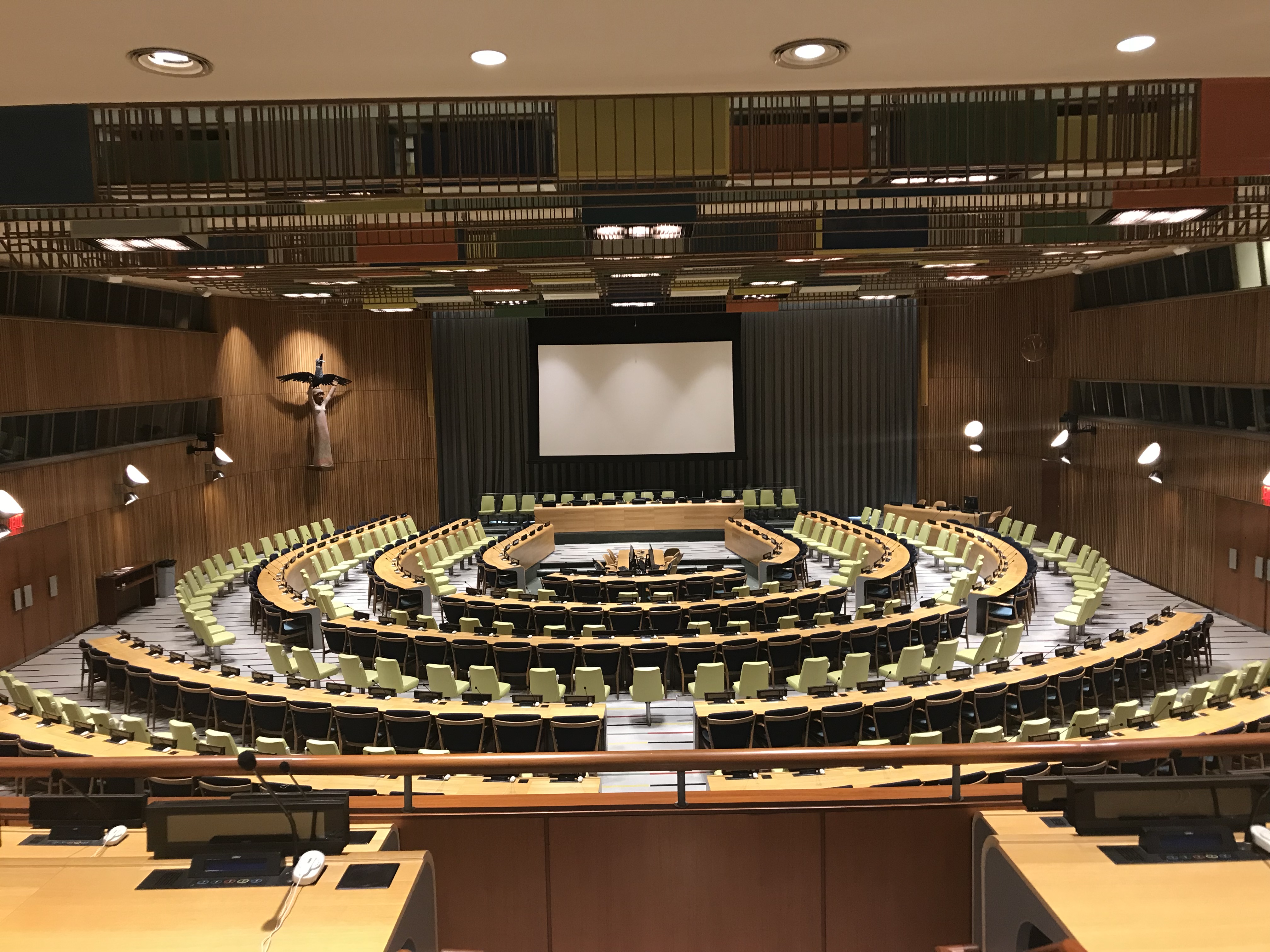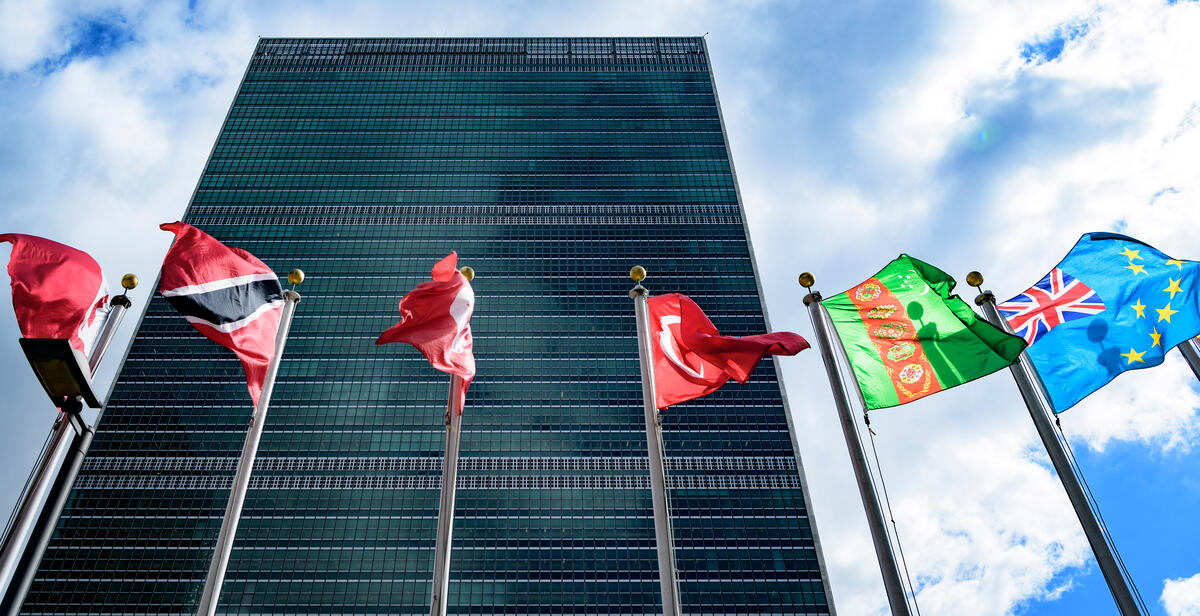
The United Nations, often called the UN, is like a big team of countries trying to keep peace and help each other. They've been around for a long time and have done a lot of important things like one of its agencies called the International Atomic Energy Agency (IAEA) watches over nuclear stuff in nearly 180 countries.
The United Nations performs multiple roles, such as helping prevent conflicts and dealing with tough situations. For the last 60 years, they've sent groups to 69 places with problems to make them safer such as they helped clear landmines in around 30 places, including Afghanistan and Congo, where these hidden explosives hurt people.
The UN is all about helping countries get along and making the world a safer place. To learn more about the UN's different parts, keep reading!
History of United Nations
In 1945, after World War II, many countries were in ruins and wanted peace. They came together at the United Nations Conference to create a new organization, the United Nations, to prevent another big war. This happened in San Francisco, California, and they signed the UN Charter. The UN officially started on October 24, 1945, after the Charter was agreed upon by many countries, including China, France, the Soviet Union, the United Kingdom, and the United States. The United Nations Day, on 24th of October, marks the anniversary of the UN Charter.
For over 75 years, the UN has been working to keep the world peaceful, help people in need, protect human rights, and follow international rules. It's also doing new things that weren't thought of in 1945, like setting goals for a better future and fighting climate change.
Organs of United Nations

1. General Assembly
-
The UN's primary discussion and decision-making body.
-
Represents all 193 UN Member States.
-
Hosts the annual General Assembly session in New York, often attended by heads of state.
-
Decides on major issues like peace, new member admission, and finances by a two-thirds majority.
The United Nations General Assembly is actively engaged in adopting resolutions on human rights, climate change, and peace efforts. It oversees the progress of Sustainable Development Goals (SDGs), holds annual debates with world leaders, and supports humanitarian initiatives, peacekeeping operations, and human rights promotion. It plays a vital role in approving the UN budget, conducting elections for the Security Council, and responding to crises through emergency sessions, making it a key player in addressing global challenges and fostering cooperation.

2. Security Council
-
Responsible for global peace and security, guided by the UN Charter.
-
Comprises 15 members, with five permanent (P5) and ten non-permanent members.
-
Decisions on security matters, including sanctions and peacekeeping missions, require P5 consensus.
The United Nations Security Council is actively involved in critical global issues. It authorizes and oversees peacekeeping missions in conflict zones, addresses international security concerns, and imposes sanctions to maintain peace. For example, the Security Council has taken action on crises like the Syrian civil war, North Korean nuclear tests, and the conflict in Ukraine. Its work is pivotal in responding to and preventing conflicts worldwide.

3. Economic and Social Council (ECOSOC)
-
Coordinates economic, social, and environmental policies worldwide.
-
Consists of 54 members chosen by the General Assembly for three-year terms.
-
Promotes sustainable development and serves as a platform for innovative ideas.
The United Nations Economic and Social Council (ECOSOC) actively engages in coordinating economic, social, and environmental policies worldwide. It sets development objectives and promotes sustainable development. For instance, ECOSOC assesses progress on the Sustainable Development Goals (SDGs) and supports initiatives related to education, healthcare, and poverty reduction. Its work contributes to improving living conditions and fostering global well-being. The United Nations Economic and Social Council (ECOSOC) collaborates with a range of specialized agencies and organizations to promote international economic and social cooperation. It is basically responsible for overseeing the operations of 15 specialized agencies, some of which are:
- United Nations Children's Fund (UNICEF)
- United Nations Educational, Scientific and Cultural Organization (UNESCO)
- World Health Organization (WHO)
- International Labour Organization (ILO)
- United Nations Development Programme (UNDP)
- World Food Programme (WFP)
- United Nations Industrial Development Organization (UNIDO)
- International Telecommunication Union (ITU)
- United Nations Environment Programme (UNEP)
- United Nations Conference on Trade and Development (UNCTAD)
- United Nations Population Fund (UNFPA)
- World Bank Group
- International Monetary Fund (IMF)
These organizations work together with ECOSOC to address global economic, social, and environmental challenges and promote sustainable development worldwide.

4. Trusteeship Council
-
Initially established to oversee Trust Territories created during WWII.
-
Many territories gained independence, leading to the council's discontinuation in 1994.
-
Only convenes when necessary due to the diminished need for oversight.
The United Nations Trusteeship Council, although currently inactive, played a crucial role in overseeing trust territories after World War II, guiding them toward independence. One notable example of its work was overseeing the transition of territories like Palau to independence. Since many territories have achieved self-governance, the Trusteeship Council no longer convenes regularly but meets when necessary to address any remaining issues.
 Source: Britannica
Source: Britannica
5. International Court of Justice (ICJ)
-
The highest UN judicial body located in The Hague, Netherlands.
-
All 193 UN members are automatically parties to ICJ cases.
-
Provides legal advice and resolves disputes referred by international bodies and nations in accordance with international law.
The International Court of Justice (ICJ) serves as the UN's supreme judicial body, actively resolving legal disputes referred by nations in accordance with international law. Notable examples of its work include settling disputes on territorial boundaries, such as the Nicaragua vs. Honduras case in the 1980s, and addressing maritime disputes, as seen in the Bangladesh vs. Myanmar case regarding the Rohingya crisis etc. The ICJ continues to provide legal counsel and uphold international law.

6. Secretariat
-
Headed by the Secretary-General, responsible for UN administration.
-
Employs staff locally and internationally, working in many countries.
-
Organizes global conferences, conducts economic and social assessments, mediates disputes, and promotes peace.
-
Additional Responsibility: Keeps the world informed about UN activities and initiatives.
The United Nations Secretariat, led by the Secretary-General, carries out various active functions. One crucial aspect of its work is organizing global conferences and negotiations, such as the Paris Agreement on climate change. It conducts assessments of economic and social trends, supports peacekeeping missions, and plays a central role in mediating international disputes. The Secretariat is vital in keeping the UN's administrative machinery running smoothly and facilitating cooperation among member states.
UN and India
- India, as a founding member of the United Nations (UN), has played a significant role in the UN's history.
- During the British Empire's rule over India, the country's connection to the UN's history began.
- In 1944, India ratified a UN declaration in Washington, D.C., and it actively participated in the 1945 United Nations Conference.
- India strongly supports the UN's ideals and objectives as one of its founding members.
- India has unwavering faith in the UN's guiding principles and has made substantial contributions to help the UN achieve its goals.
- India boasts one of the most extensive UN field networks among nations.
- Numerous UN initiatives, funding, and programs have been established and executed in India.
- Currently, 26 United Nations organizations are active in India.
- Prominent UN agencies like WHO, FAO, UNESCO, UNAIDS, IMF, APCTT, and IFAD are actively engaged in India.
- A notable achievement includes an Indian serving as the first female president of the UN General Assembly.
UNO Organization Conventions
Due to the United Nations Organization's considerable membership, it frequently gathers and hosts significant conventions and conferences. These UN conventions are intended to bring together, discuss, and ultimately resolve the issues of each nation. Here are a few of these conferences or conventions.
-
UNCBD – UN Convention on Biological Diversity
-
UNCLOS – UN Convention on the Law of the Sea
-
UNFCCC – UN Framework Convention on Climate Change
-
UNCAT – UN Convention Against Torture
-
Montreal Protocol
-
Kyoto Protocol
-
ITLOS – International Tribunal for the Law of the Sea
-
Minamata Convention
-
Rio Summit (UNCED)
-
Kigali Amendment
-
CEDAW – Convention on the Elimination of All Forms of Discrimination Against Women etc.
To learn these conventions and conferences in detail, enrol on our course on International Law
Milestones achieved by UNO
-
India Signs the UN Charter (1945)
- India becomes a founding member of the UN.
- Commits to peace, self-determination, and international cooperation.
-
ILO's UN Specialized Agency (1946)
- The International Labour Organization (ILO) joins the UN.
- Focuses on labor standards and social protection worldwide.
-
UN Adopts Human Rights Declaration (1948)
- The UN adopts the Universal Declaration of Human Rights.
- India votes in favor, with contributions from Hansa Mehta to ensure equality.
-
Nehru Addresses UN (1948)
- India's first Prime Minister, Jawaharlal Nehru, affirms commitment to UN principles.
- Pledges to work for the UN's goals.
-
Vijaya Lakshmi Pandit's UNGA Presidency (1953)
- Vijaya Lakshmi Pandit becomes the first woman president of the UN General Assembly.
- Marks a milestone in UN leadership.
-
India's First Peacekeeping Mission (1953)
- India deploys 60 Para troops to Korea under UN Command.
- Begins India's journey in UN peacekeeping efforts.
-
International Day of Non-Violence (2007)
- UN declares 2 October, Gandhi's birth anniversary, as International Day of Non-Violence.
- India initiates the resolution to promote nonviolence and peace.
-
India Declared Polio-Free (2014)
- India successfully eliminates polio cases.
- Collaborative efforts and extensive vaccination campaigns lead to this achievement.
-
All-Women Peacekeeping Contingent in Liberia (2007)
- India deploys the first-ever all-female police unit to Liberia for peacekeeping.
- These women contribute to local security and public order.
These milestones highlights India's significant role in the United Nations and its commitment to global peace and cooperation.